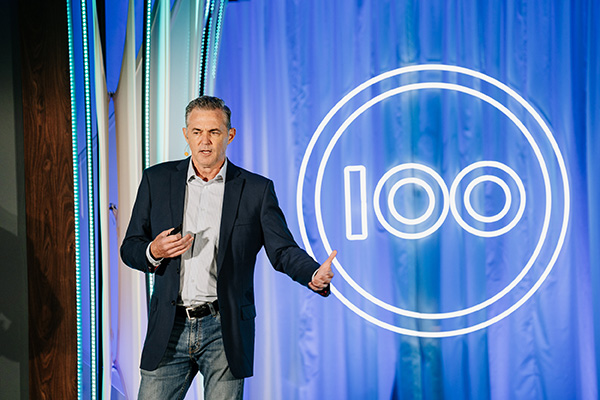Zero100 is urging supply chain leaders to pick up the pace on AI implementation or risk falling behind the competition.
Businesses need to pick up the pace of supply chain AI implementation or risk falling behind the competition, according to a leading supply chain intelligence company.
Zero100, which serves some of the world’s biggest companies, including Walmart, Google, Volvo, PUMA and Unilever, argues that supply chain leaders have a ‘once-in-a-generation opportunity’ to own AI strategy and propel their organizations into a 100% digital future.
However, its research shows that just a handful of organizations have made serious progress on the journey from AI experimentation to implementation, with only 11% of firms deploying AI beyond the pilot phase. Similarly, in a recent analysis of major brands’ corporate earnings calls, Zero100 found that while 88% of CEOs talked about AI vision, only one in four was able to cite results.
To help supply chain leaders accelerate their implementation efforts, at Zero100 Forum this year, the company presented a radical roadmap, ‘The 90-Day AI Fast Track’, for successfully adopting AI.
The roadmap is designed to help companies running complex global supply chains to use digital technology to turn existing business models on their head and inspire more agile, resilient, and accountable supply chains.
Zero100 has long highlighted AI’s potential to revolutionise not only supply chain operations but entire organisations. ‘The 90-Day AI Fast Track’ comprises three 90-day plans designed to help companies accelerate digital adoption:

Kevin O’Marah, Chief Research Officer and co-founder of Zero100 comments: “AI is fundamentally changing the landscape of supply chain management – and it’s happening at a faster rate than we’ve seen before. It’s the biggest tech inflection point since the internet and, while AI experiments have been ongoing, the rise of generative AI is pushing digitisation to the forefront. Boards recognise that the ability to digitise and embrace AI will be the difference between prosperity and decline over the next decade. They now need a clear path forward to capitalise on this opportunity.”
Scott Ellyson, CEO of East West Manufacturing, brings decades of global manufacturing and supply chain leadership to the conversation. In this episode, he shares practical insights on scaling operations, navigating complexity, and building resilient manufacturing networks in an increasingly connected world.